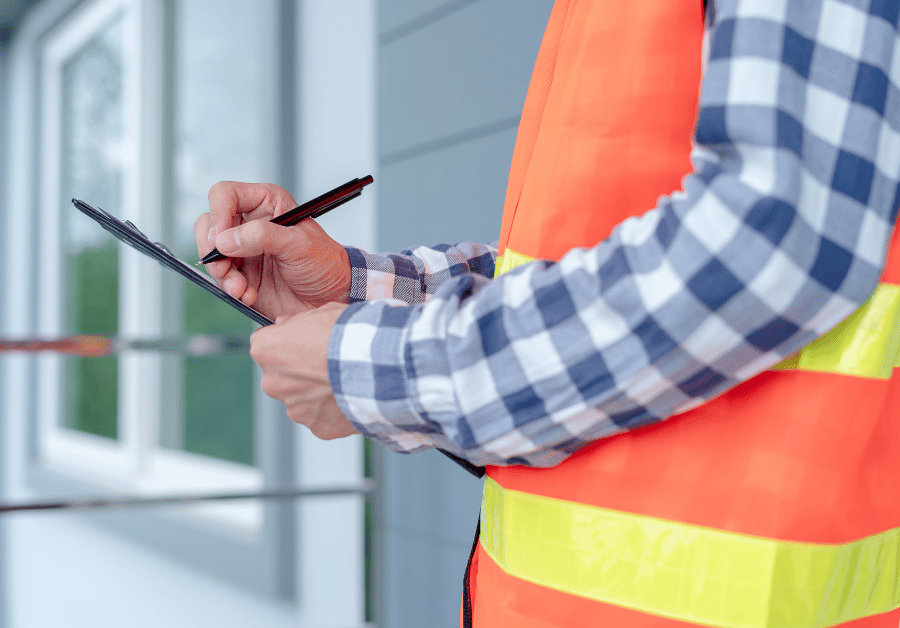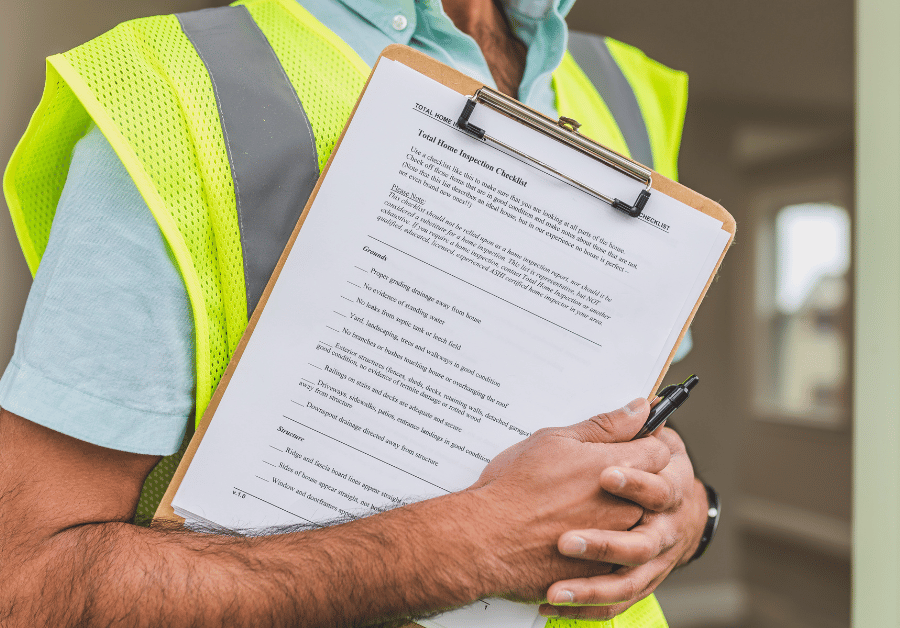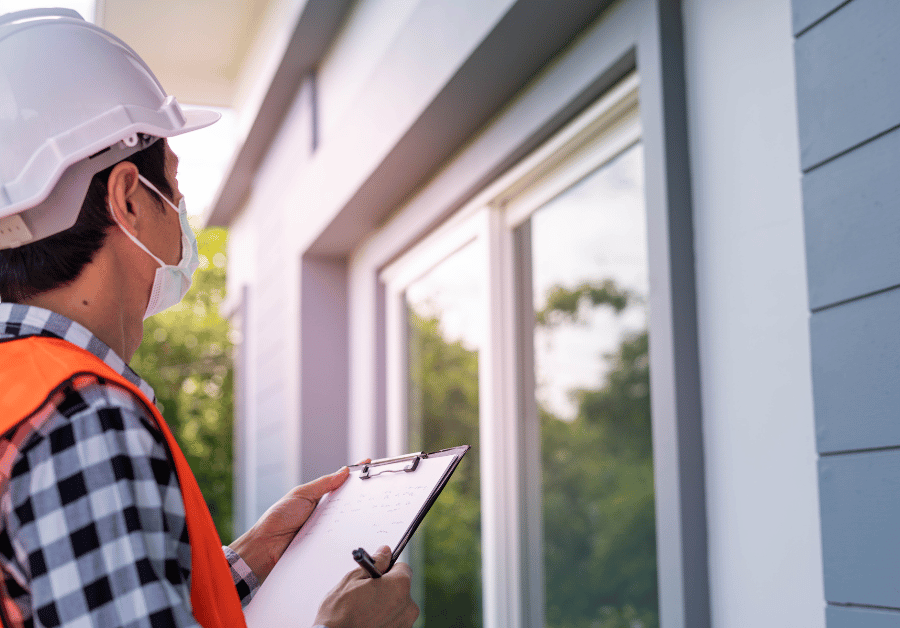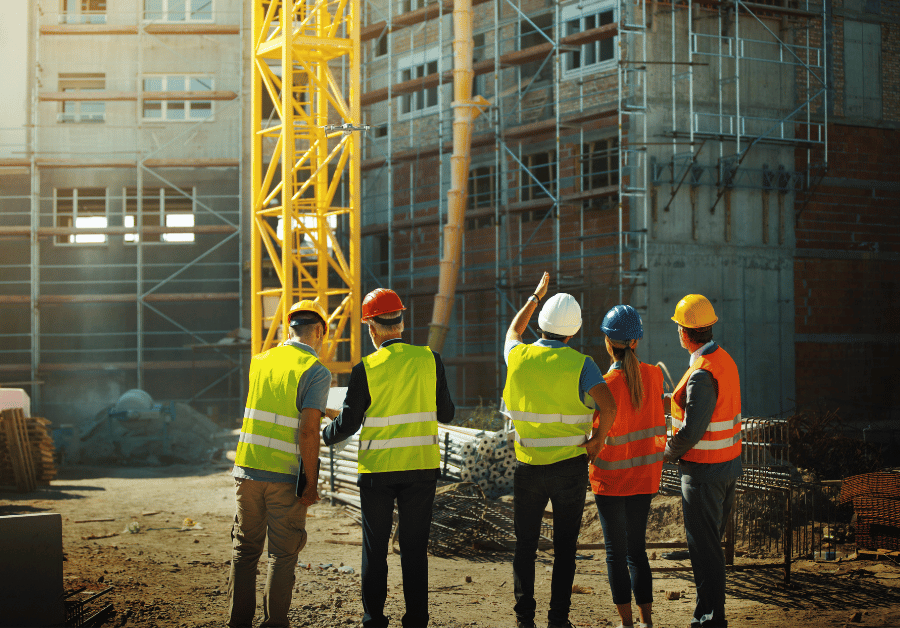Your Essential Guide to a Buildings Inspector in Australia
Buying a home or undertaking significant renovations in Australia? It’s an exciting time, but one crucial step often overlooked or underestimated is engaging a professional buildings inspector. Whether you're in the bustling cities of Sydney, Melbourne, Brisbane, Perth, Adelaide, or the charming capital of Hobart, understanding the vital role a qualified building inspector plays is paramount to protecting your investment and ensuring safety.
At ., we understand the importance of making informed decisions when it comes to your property. That's why we've compiled this comprehensive guide to shed light on everything you need to know about building inspections across Australia, helping you navigate the complexities of property assessment with confidence.
What Exactly Does a Buildings Inspector Do?

A buildings inspector, often also referred to as a building inspector or building surveyor, is a highly skilled professional responsible for assessing the structural integrity, safety, and compliance of a property with relevant Australian building codes and regulations. Their primary goal is to identify defects, potential hazards, and non-compliant work that might not be visible to the untrained eye.
Their work isn't just about finding problems; it's about providing you with a clear, unbiased report on the true condition of a property. This information is invaluable, whether you're about to make the biggest purchase of your life, planning a major renovation, or simply ensuring your current home meets all safety requirements.
Key tasks a buildings inspector performs include:
- Visual Inspection: A thorough visual assessment of all accessible areas of the property, from the roof space to the subfloor.
- Structural Assessment: Checking for signs of structural issues like cracking, subsidence, or deterioration of load-bearing elements.
- Compliance Checks: Ensuring the property adheres to the National Construction Code (NCC), local council building regulations, and relevant Australian Standards.
- Defect Identification: Pinpointing minor and major defects, such as dampness, timber rot, poor drainage, or faulty construction work.
- Safety Hazards: Identifying potential safety concerns like inadequate balustrades, faulty stairs, or non-compliant smoke detectors.
- Report Generation: Compiling a detailed, easy-to-understand building inspection report outlining findings, recommendations, and estimated costs for repairs.
Why is a Buildings Inspector Crucial for Your Property Journey?
Engaging a buildings inspector is more than just a formality; it's a vital safeguard. Here's why it's a non-negotiable step for anyone involved in property in Australia:
Pre-Purchase Peace of Mind
For potential homebuyers, a pre purchase building inspection is arguably the most important inspection you'll undertake. It uncovers hidden issues that could cost you thousands (or even tens of thousands) in repairs after settlement. Imagine buying your dream home only to discover serious structural damage or a leaking roof – a good buildings inspector can prevent this nightmare.
Many homebuyers also opt for a combined building and pest inspection. This comprehensive service covers not only structural integrity but also identifies active timber pests like termites, which can cause devastating damage to a property. The peace of mind from knowing your potential new home is structurally sound and free from destructive pests is invaluable.
Ensuring Safety and Compliance
A buildings inspector ensures your property meets essential safety standards and adheres to the National Construction Code and local building regulations. This is critical for the safety of occupants and can prevent future legal complications or insurance claim issues. Non-compliant building work can lead to significant penalties and costly rectification.
Negotiating Power
The findings in a building inspection report can be powerful tools in negotiations. If significant defects are identified, you may be able to negotiate a lower purchase price, request the vendor to fix issues before settlement, or even withdraw your offer if the problems are too extensive.
Project Management and Quality Assurance
If you're building a new home or undertaking major renovations, a buildings inspector can conduct stage inspections (e.g., slab, frame, pre-plaster, pre-handover). This ensures the builder is adhering to plans, standards, and the NCC throughout the construction process, catching issues early before they become expensive problems to fix. This proactive approach ensures quality work and helps avoid disputes down the line.
Types of Building Inspections: What to Expect

While the umbrella term is building inspections, there are several specialised types:
- Pre-Purchase Building Inspection: The most common type, conducted before purchasing an existing property. Focuses on major defects and safety hazards.
- Pre-Purchase Building and Pest Inspection: A combined service, highly recommended for most residential properties, covering both structural issues and timber pest activity.
- New Home Construction Stage Inspections: Carried out at various crucial stages during the construction of a new home (e.g., footings, slab, frame, lock-up, fixing, practical completion).
- Dilapidation Report: Documents the existing condition of a property prior to nearby construction or demolition work, protecting owners from claims of damage.
- Special Purpose Inspection: For specific concerns, such as a leaking roof, cracking walls, or suspected illegal building work.
- Asbestos Inspection: Identifies and assesses the presence and condition of asbestos-containing materials.
Finding a Qualified Buildings Inspector in Australia: State by State
The regulation and registration and licensing requirements for a buildings inspector vary slightly across Australian states and territories. It's crucial to ensure your chosen professional is appropriately qualified, insured, and licensed for your specific location.
Here’s a general overview for major Australian cities:
| State/Territory | Regulatory Body / Key Information | Relevant Cities |
|---|---|---|
| New South Wales (NSW) | Building work is regulated by NSW Fair Trading. Building Surveyors are generally accredited. Look for licensed builders or building consultants with relevant experience and professional indemnity insurance. | Sydney |
| Victoria (VIC) | The Victorian Building Authority (VBA) regulates the building and plumbing industry. Building surveyors and inspectors must be registered with the VBA. Experience and qualifications are key for a building practitioner. Many services operate in the Mornington Peninsula and surrounding areas. | Melbourne, Mornington Peninsula |
| Queensland (QLD) | The Queensland Building and Construction Commission (QBCC) oversees licensing for building certifiers and inspectors. Ensure they hold the appropriate licence class for the type of inspection. | Brisbane |
| Western Australia (WA) | Building and Energy (WA) is the state's building and energy regulator. Building surveyors are typically registered. Look for professionals with a strong understanding of WA's building regulations. | Perth |
| South Australia (SA) | PlanSA provides information on building rules and compliance. Building surveyors are key to ensuring compliance with the Building Code. | Adelaide, South Australia |
| Tasmania (TAS) | The Tasmanian Building Act 2016 and Building Regulations 2016 govern building work. Building surveyors are licensed. | Hobart |
When searching for a buildings inspector, always verify their credentials, insurance (especially professional indemnity), and ask for examples of their report style. Reputable inspectors will be happy to provide this information.
What Qualifications Should a Buildings Inspector Have?

To become a qualified buildings inspector in Australia, individuals typically need a relevant qualification such as a Diploma or Advanced Diploma in Building Surveying or Building and Construction. Many also have extensive practical experience in the building industry, often as licensed builders themselves. Professional bodies like the Australian Institute of Building Surveyors (AIBS) or relevant state authorities (e.g., VBA) play a role in setting standards and offering accreditation.
The ANZSCO (Australian and New Zealand Standard Classification of Occupations) code for a Building Inspector is 312113, which requires a qualification assessed as comparable to the educational level of an Australian Diploma or higher, plus at least two years of relevant practical experience. This ensures a high level of expertise in the field.
The Building and Pest Inspection Synergy
We often recommend combining a building inspection with a pest inspection. Why? Because while a buildings inspector focuses on structural and major defects, a pest inspector (or pest control specialist) specifically looks for timber pests like termites, borers, and fungal decay. These pests can cause significant damage to timber elements of a home, compromising its structural integrity without always being immediately obvious.
A combined building and pest inspection provides a holistic view of the property's condition, giving you the most comprehensive assessment before you commit. This is particularly important in areas with high termite activity, common across many parts of Australia.
Common Issues a Buildings Inspector Uncovers
While every property is unique, certain issues are frequently identified during building inspections:
- Structural Cracks: Indicating foundation movement or structural stress.
- Dampness and Moisture Issues: Leading to mould, timber rot, and potential health problems.
- Roofing Problems: Leaks, damaged tiles/sheets, inadequate flashing.
- Poor Drainage: Causing water ingress into subfloor or foundations.
- Subfloor Ventilation Issues: Leading to timber decay and pest attraction.
- Non-Compliant Alterations: Unapproved extensions or modifications that don't meet current building regulations.
- Asbestos: Identification of asbestos-containing materials (ACMs) and their condition.
- Safety Hazards: Defective balustrades, stairs, or wiring (though electrical inspections are separate, a buildings inspector will note obvious risks).
How to Choose the Right Buildings Inspector
Selecting the right professional is crucial. Here are key factors to consider:
- Qualifications & Licensing: As discussed, ensure they are appropriately qualified and licensed in your state or territory. Check their registration status with the relevant authority (e.g., VBA, QBCC).
- Experience: Look for inspectors with significant experience, especially with properties similar to the one you're interested in (e.g., age, construction type).
- Insurance: Verify they hold professional indemnity insurance and public liability insurance.
- Report Quality: Ask for a sample report. It should be clear, detailed, easy to understand, and include photos.
- Professionalism & Communication: They should be approachable, willing to answer your questions, and explain findings clearly.
- Reputation: Check online reviews, testimonials, and ask for references.
- Availability: Can they conduct the inspection within your crucial contract deadlines?
At Get 3 Quote, our network includes verified, highly-rated buildings inspectors and pest inspectors across Australia, making your search significantly easier.
The Cost of a Buildings Inspection: An Investment, Not an Expense
The cost of a building inspection varies based on the property size, location, type of inspection (e.g., combined building and pest inspection will be more), and the inspector's fees. While it’s an upfront cost, consider it a vital investment. The money saved by identifying major defects before purchase, or by ensuring compliance during construction, far outweighs the initial expense.
For example, discovering significant structural issues that require $50,000 in repairs before you buy means the $500-$1000 inspection fee was an incredibly wise expenditure. It’s about risk mitigation and informed decision-making for your valuable property.
The Future of Building Inspections in Australia
The building industry is constantly evolving, with new technologies and regulations emerging. Digital tools, drone technology for roof inspections, and advanced moisture detection equipment are becoming more common, enhancing the accuracy and efficiency of building inspections. Furthermore, ongoing practitioner education and adherence to the latest versions of the National Construction Code ensure that buildings inspectors remain at the forefront of property safety and compliance.
As Australia's population grows and housing demands increase, the role of a diligent buildings inspector becomes even more critical in upholding construction quality and protecting homeowners. From new development application approvals to the inspection of small second homes, their expertise is indispensable.
Your Next Step: Find a Trusted Buildings Inspector with Get 3 Quote
Navigating the property market in Australia, from Sydney to Perth and everywhere in between, requires expert support. When you need a reliable buildings inspector, Get 3 Quote makes the process simple, efficient, and stress-free.
Here’s how we connect you with the right professionals:
- Tell us what you need: Fill out our simple online form and describe the type of building inspection or building and pest inspection you require.
- Get quotes from professionals: We’ll connect you with up to 3 detailed quotes from verified local buildings inspectors and pest inspectors in your area.
- Choose the best match: Compare quotes, read reviews, and review profiles to find the perfect professional for your job, ensuring you get quality services and peace of mind.
Don't leave your property investment to chance. Empower yourself with comprehensive information and expert insights from a qualified buildings inspector. Get started today and secure your property future.
